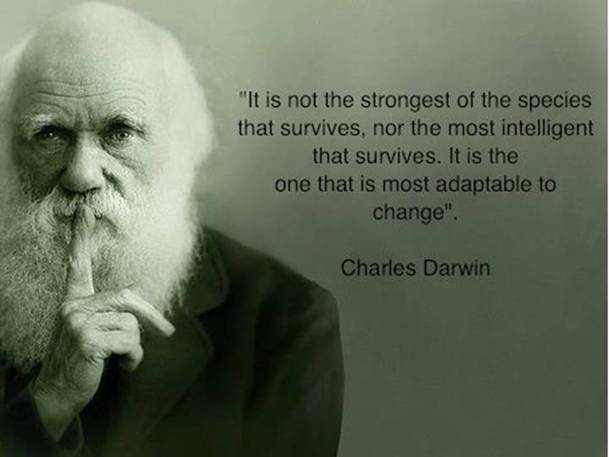So again, unless you are trying to claim that all the given examples of speciation were polyploidy, you don't have much point in harping on that.
Again, the quote you gave by a creationist from a court case in which the court ruled those using him as an expert were trying to push religion rather than science, was that no one has ever observed a new animal species arise from an old one. I've provided examples of that. Any attempt by you to change the question, or use a personal definition for speciation, or discredit polyploidy examples and ignore non-polyploidy examples is your own issue.
If you want to ask whether a new genus has been observed being created or something like that, then do so.
It seems that you are content to simply close your eyes, and cover your ears...and the 150 year unproven theory.
Or....you just don't have the background necessary to understand that lack of scientific proof involved in Darwinism.
How about this approach:
1. Alan H. Linton, Emeritus Professor of Bacteriology
University of Bristol (UK), said in a 2001 article,
"Throughout 150 years of the science of bacteriology, there is no evidence that one species of bacteria has changed into another "¦ Since there is no evidence for species changes between the simplest forms of unicellular life, it is not surprising that there is no evidence for evolution "¦ throughout the whole array of higher multicellular organisms."
Alan H. Linton (Signee of A Scientific Dissent from Darwinism)
What is your response?
Is Linton lying? And why would he...the profit both career-wise and status-wise would be to say the opposite.
After all, many have lost their jobs in denying Darwin.
Explain.
And, after that, explain these:
2. Lynn Margulis attended the University of Chicago, earned a master's degree in Biological Sciences from theUniversity of Wisconsin-Madison in 1960, and received her Ph.D. in 1963 in the faculty of Biological Sciences from UC Berkeley in Botany.
Lynn Margulis - Wikipedia, the free encyclopedia
a. Neo-Darwinists say that new species emerge when mutations occur and modify an organism. I was taught over and over again that the accumulation of random mutations led to evolutionary change [which] led to new species. I believed it until I looked for evidence.
― Lynn Margulis
b. New mutations don't create new species; they create offspring that are impaired.
― Lynn Margulis
c. . "It is totally wrong. It's wrong like infectious medicine was wrong before Pasteur. It's wrong like phrenology is wrong. Every major tenet of it is wrong," said the outspoken biologist Lynn Margulis about her latest target: the dogma of Darwinian evolution. [With her theses], Margulis was . . . denouncing the modern framework of the century-old theory of Darwinism, which holds that new species build up from an unbroken line of gradual, independent, random variations. Margulis is not alone in challenging the stronghold of Darwinian theory, but few have been so blunt.
As cited in Kevin Kelly's book, Out of Control: The New Biology of Machines, Social Systems and the Economic World12 Kevin Kelly, Out of Control: The New Biology of Machines, London: Fourth Estate, 1995, pp. 470-471
3. Jeffrey Hugh Schwartz, PhD, (born March 6, 1948) is an American physical anthropologist[1] and professor of biological anthropology at the University of Pittsburgh in Pittsburgh, Pennsylvania, and a fellow and President of the World Academy of Art and Science (WAAS) from 2008-2012. Schwartz' research involves the methods, theories, and philosophies in evolutionary biology, including the origins and diversification of primates.
Jeffrey H. Schwartz - Wikipedia, the free encyclopedia
a. ... It was and still is the case that, with the exception of Dobzhansky's claim about a new species of fruit fly, the formation of a new species, by any mechanism, has never been observed. Jeffrey H. Schwartz, Sudden Origins: Fossils, Genes, and the Emergence of Species, New York: John Wiley & Sons, 2000, p. 300
These are not laymen....they are employed in the realm of science.
Learn from what they are teaching.
And....there are many more.
The less you know about science, the more you believe in Darwinism.


